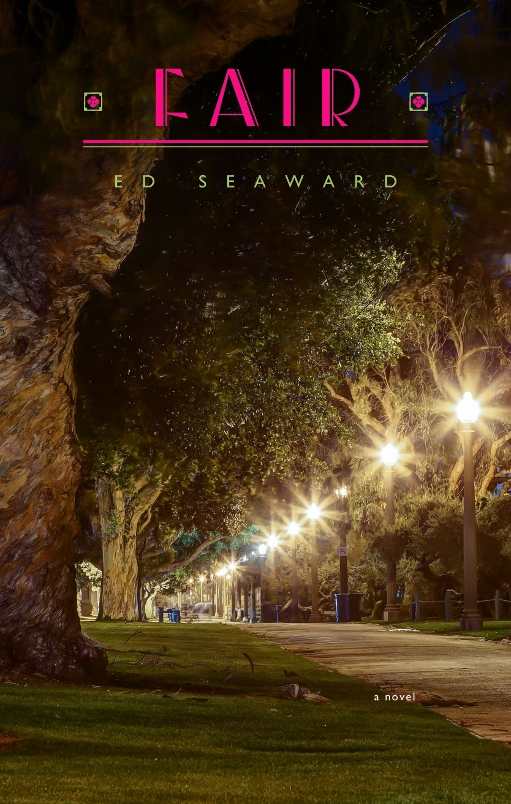Fair
Fair is a contemplative novel about trauma and connection among society’s most overlooked people.
Milton’s epic Paradise Lost provides comfort and courage to a homeless man in Ed Seaward’s pensive novel Fair.
Eyan is homeless. He does not know for how long he has been homeless, but he knows that he left home when his mother and sister disappeared. Every day, he walks along Venice Beach and the boardwalk, to Warner Brothers Studios, to Griffith Park and back. It’s a long walk, but it keeps him from being told to “move along,” and from becoming visible.
Then Eyan meets an old school friend, Marc, on the streets. Marc introduces him to the professor, an older man with a shopping cart full of books. One of those books is Milton’s Paradise Lost. At night, when the light is just right, the professor reads it to Eyan, who is swept up in the immortal battle for humanity.
But everything starts to go wrong when another of Eyan’s old school friends, Paul, conscripts him into being a drug mule. Paul is obsessed with the rumor of the professor having a stash of money, and he will do anything, and kill anyone, to get it.
In short chapters that begin in the middle of the story, the opening sections of the book are nonlinear memories of Eyan’s past; it is not always clear when the action is happening. When Marc begins coming around, and introduces the professor, the story better integrates these remembrances with the present. Like a Möbius strip, the story returns to the middle and continues on through the end of the book, hinting at, but not revealing, what is to come until the last possible moment.
While the book makes it clear that Paul’s greed is the driving force behind the negative action in the present, the main draw into the story, both past and present, is Eyan. He is a tragic figure. Where others can verbalize and rationalize their paths, Eyan cannot in any way that makes linear sense. He knows what happened to send him to the streets (a combination of physical abuse and witnessing, by mere happenstance, sexual abuse and a violent assault), but beyond that, there is nothing; he has lost his sense of time. This loss permeates the book. Since he can no longer make sense of the passage of time, his days, months, and years run together, and the book exists in a timeless void of hot and humid California days and nights.
The timelessness of the book, combined with the traumas endured by its characters, results in a melancholy tone that is tempered by resignation to the daily rhythms of homeless life and fleeting, infrequent moments of peace. These sensibilities are heightened by the book’s sparse, poetic language, which seldom includes contractions, inviting both reflection and close attention. The lack of heavy dialogue mirrors the silence that the characters take on in order to survive in an area often overrun with people.
Fair is a contemplative novel about trauma and connection among society’s most overlooked people.
Reviewed by
Dontaná McPherson-Joseph
Disclosure: This article is not an endorsement, but a review. The publisher of this book provided free copies of the book and paid a small fee to have their book reviewed by a professional reviewer. Foreword Reviews and Clarion Reviews make no guarantee that the publisher will receive a positive review. Foreword Magazine, Inc. is disclosing this in accordance with the Federal Trade Commission’s 16 CFR, Part 255.

